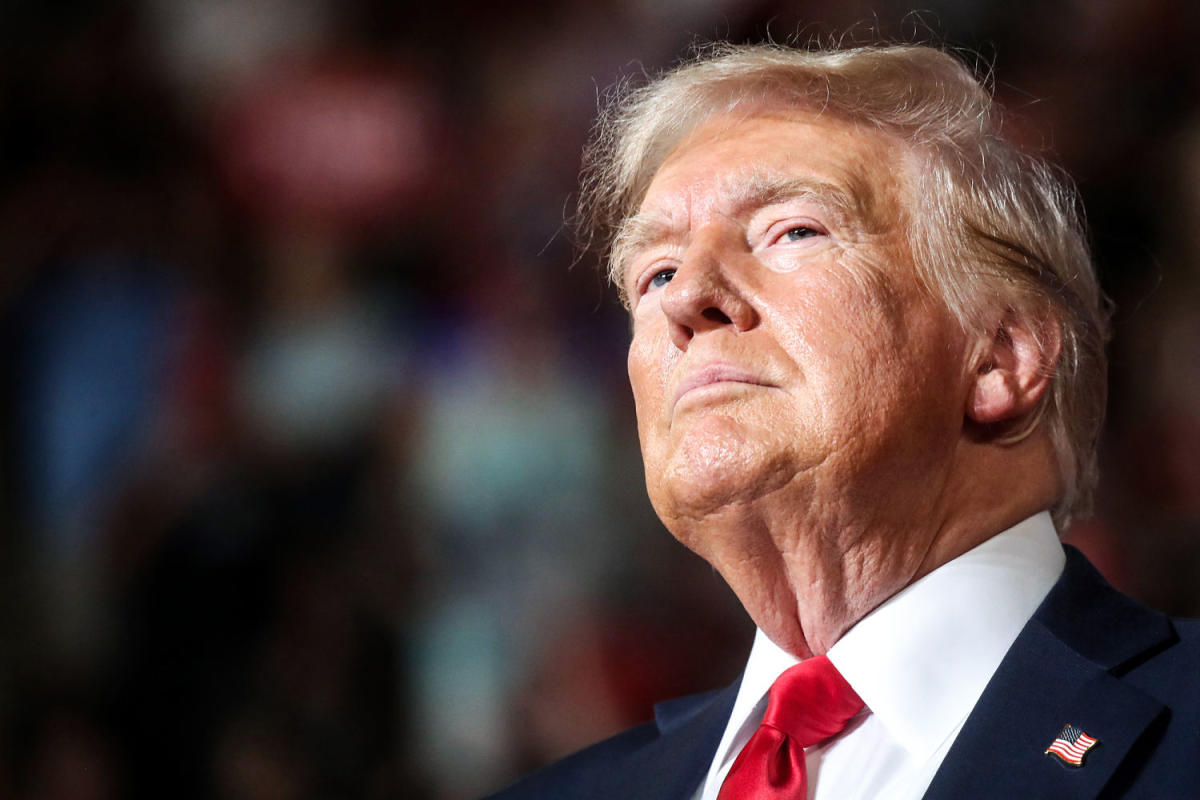
WASHINGTON — No date has yet been set for former President Donald Trump’s federal trial over his scheme to overturn his 2020 presidential loss by spreading what an indictment called his “unsupported, objectively unreasonable, and ever-changing” claims of mass voter fraud.
U.S. District Judge Tanya Chutkan held a status hearing in the case in a federal courtroom in Washington on Thursday, nine days after a new federal grand jury returned a superseding indictment against Trump charging him with the same four felonies he first faced in his original indictment last August: conspiracy to defraud the United States, conspiracy to obstruct an official proceeding, obstruction of and attempt to obstruct an official proceeding and conspiracy against rights.
Chutkan acknowledged that the case has not moved forward quickly due to Trump’s appeal to the Supreme Court, which ruled that Trump has some presidential immunity and returned the issue to the lower court.
Chutkan said Thursday that she would not let the 2024 election determine the schedule of the case, saying that Trump attorney John Lauro seemed to be arguing that the November election should impact the pre-trial briefing schedule.
“It strikes me that what you’re trying to do is affect the presentation of evidence in this case so as to not impinge on a presidential election,” Chutkan said.
“I understand there is an election pending,” she said. “This court is not concerned with the electoral schedule. … That’s nothing I’m going to consider.”
Pointing out that the case has been “pending for a year,” Chutkan said that the court “can’t even really contemplate a trial date” yet because of pending appellate issues.
“We’re hardly sprinting towards the finish line here,” Chutkan said, saying it would be “an exercise in futility” to set a trial date at this point given the appellate issues.
Chutkan said she would take all arguments into consideration before issuing a schedule in the case.
Chutkan on Thursday also accepted Trump’s not guilty plea for the superseding indictment, which Lauro entered on Trump’s behalf after the former president signed paperwork authorizing Lauro to do so. Trump was not present in the courtroom.
The latest indictment against Trump removed references to some evidence from his initial indictment following the Supreme Court’s immunity ruling: chiefly, the government’s claim that Trump attempted to weaponize the Justice Department on behalf of his presidential campaign, including by enlisting a right-wing civil environmental lawyer and election denier, Jeffrey Clark, to potentially take over the DOJ just days before the Jan. 6 attack on the U.S. Capitol.
A lawyer with Smith’s office told Chutkan Thursday that prosecutors know that Trump’s team plans to bring another appeal all the way up to the Supreme Court and that Smith’s office is seeking to streamline the process.
“We should structure a schedule that leads to only one additional interlocutory appeal,” said federal prosecutor Thomas Windom, who works for Smith’s office. “We think all immunity determinations should be held at the same time, simultaneous.”
Lauro, Trump’s lawyer, noted that the defense plans on not only challenging the indictment itself but also Smith’s appointment.
“We have an illegitimate prosecutor, we have an illegitimate indictment,” Lauro said, arguing that Smith’s appointment as special counsel wasn’t authorized by the law and describing Smith as a “private citizen.”
A Trump-appointed federal judge in Florida ruled that Smith was illegitimately appointed in dismissing a separate classified documents case against Trump in July. That ruling would impact many of the special counsels that have been appointed for decades. The Justice Department is appealing, and Attorney General Merrick Garland told NBC News that U.S. District Judge Aileen Cannon’s ruling was mistaken.
“Do I look like somebody who would make that basic mistake about the law?” Garland, who appointed Smith, said. “I don’t think so.”
Chutkan said in court Thursday that she didn’t find the ruling from the Florida judge persuasive.
After Trump’s initial indictment last August, Chutkan set a trial date for March 2024, meaning that a verdict would very likely have been returned at this point and, if convicted, Trump would likely be facing sentencing.
While numerous Jan. 6 defendants have told federal courts that they regret being gullible enough to be duped and manipulated by Trump’s false election claims — some of them even describing themselves as “idiots” — Trump has continued to spread false information about the election, even as Fox News and his lawyer Rudy Giuliani have settled and lost civil cases, respectively, over their false 2020 election claims, resulting in findings totaling in hundreds of millions of dollars.
Trump recently told a podcaster that he lost the last election “by a whisker“ — he actually lost the popular vote by seven million and the Electoral College count by a significant margin — before adding that he still thinks “the election was a fraud, and many people felt it was.”
Federal prosecutors have charged more than 1,400 defendants in connection with the Jan. 6 attack and secured more than 1,000 convictions. Hundreds of rioters have received probationary sentences, but more than 500 have been sentenced to periods of incarceration ranging from a few days behind bars to 22 years in federal prison for former Proud Boy chairman Enrique Tarrio, who was convicted of seditious conspiracy.
This article was originally published on NBCNews.com
EMEA Tribune is not involved in this news article, it is taken from our partners and or from the News Agencies. Copyright and Credit go to the News Agencies, email news@emeatribune.com Follow our WhatsApp verified Channel





